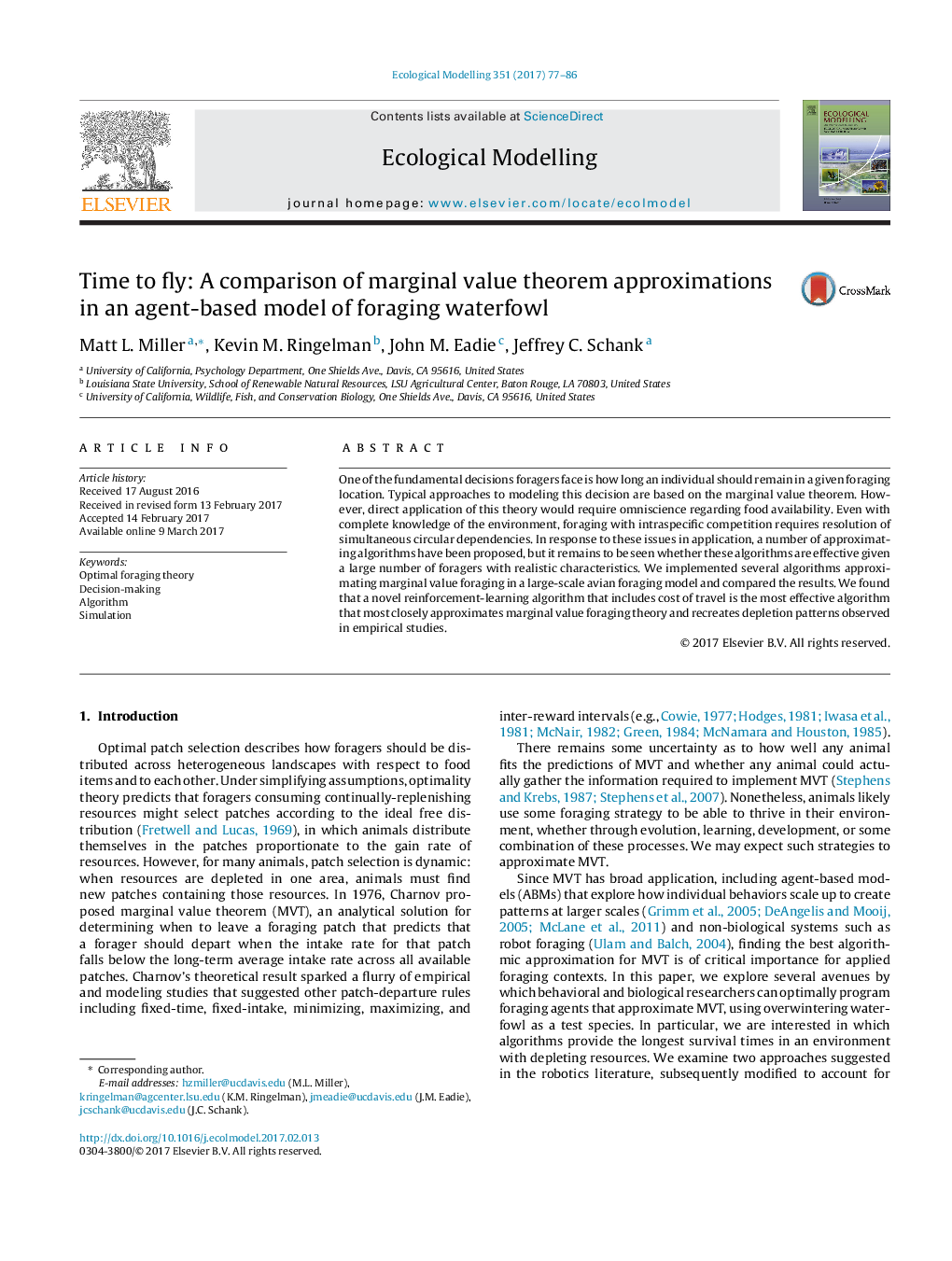| Article ID | Journal | Published Year | Pages | File Type |
|---|---|---|---|---|
| 5742221 | Ecological Modelling | 2017 | 10 Pages |
â¢Implementation of an algorithm that exactly matches the marginal value theory of foraging is computationally intractable.â¢We implement several algorithms approximating marginal value foraging to determine the most efficient.â¢We find a novel reinforcement-learning algorithm, including cost of travel, is most efficient.
One of the fundamental decisions foragers face is how long an individual should remain in a given foraging location. Typical approaches to modeling this decision are based on the marginal value theorem. However, direct application of this theory would require omniscience regarding food availability. Even with complete knowledge of the environment, foraging with intraspecific competition requires resolution of simultaneous circular dependencies. In response to these issues in application, a number of approximating algorithms have been proposed, but it remains to be seen whether these algorithms are effective given a large number of foragers with realistic characteristics. We implemented several algorithms approximating marginal value foraging in a large-scale avian foraging model and compared the results. We found that a novel reinforcement-learning algorithm that includes cost of travel is the most effective algorithm that most closely approximates marginal value foraging theory and recreates depletion patterns observed in empirical studies.
